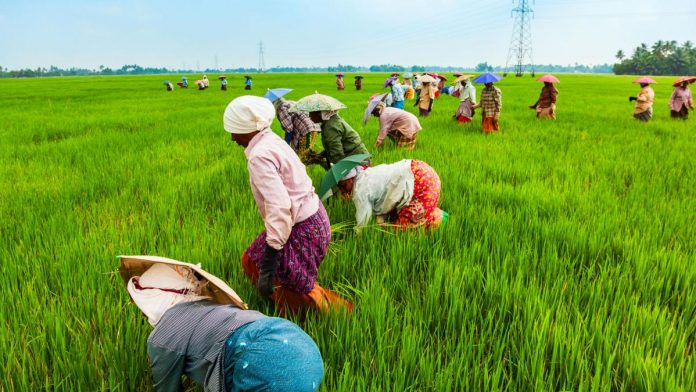The Private sector is to be given the sole responsibility of importing fertiliser for farmers for the next maha season cultivation starting in September this year while the state will not be involved in such imports, the Agriculture Ministry announced.
The Finance Ministry has been entrusted with the task for providing a sum fertiliser subsidy to all farmers under the present stressful situation , minister Mahinda Amarweera said.
This will help to prevent alleged corrupt practices of ruling party politicians in importing and distributing fertiliser, he said adding that hereafter no one can point finger at politicians and officials towards this end.
Prime Minister Ranil Wickremesinghe, agriculture experts and officials have warned of a food crisis in the coming months if the new administration is failed to find solutions to dollar crisis. .
Food commodity importers recently warned of higher food prices and shortages of food items after the ban on open account and DA/DP transactions with a view of overcoming the Forex crisis by raising rates and preventing private credit.
However the Central Bank on Monday 30 announced that it will facilitate task of providing dollars from banks for food imports following the ban on open account imports.
With the Sri Lankan economy in crisis, prices spiralling and fuel running out with no fertiliser for cultivation , farmers who should be planting their crops at the start of the rainy season are struggling – prompting fears of a looming food crisis.
Queues stretch at government-run Sathosa shops and retail outlets to buy essential commodities in short supply, such as rice, dal and flour and milk powder because the prices in these outlets are still low.
In private groceries and supermarkets, the prices are three to four times higher. People who can afford to do so are buying from these shops. But quantities per customer are restricted.
Vegetables are aplenty, but because diesel is in short supply, transport costs have led to a hike in prices. In the villages, families subsist on what they grow.
Many farmers in Sri Lanka have not been able to access diesel for weeks, and due to this, they are unable to transport their crops to the economic centers.
This has forced many wholesale traders to idle at economic centers on a daily basis, awaiting the arrival of a tractor load of fresh crops to be sold elsewhere. .
